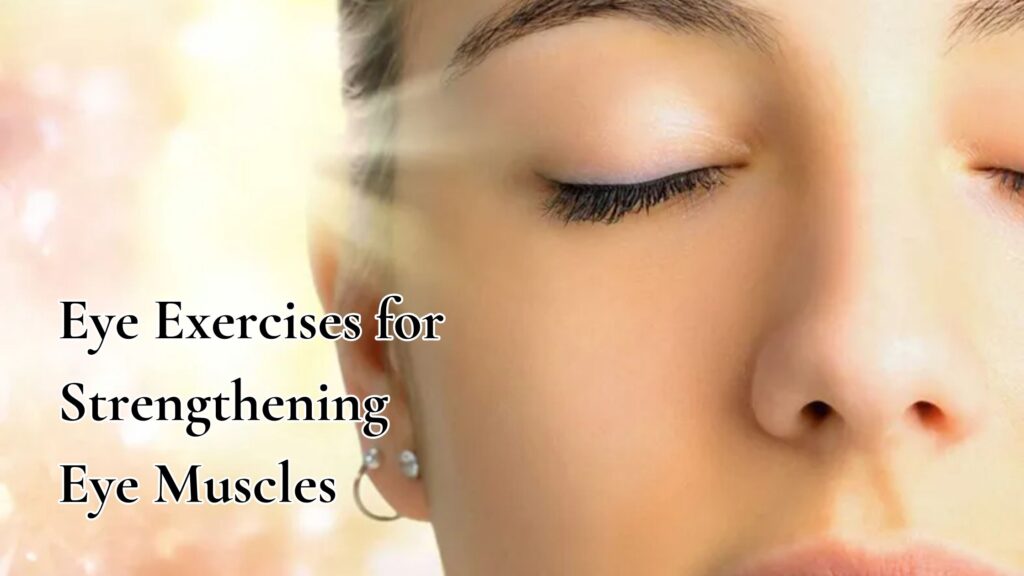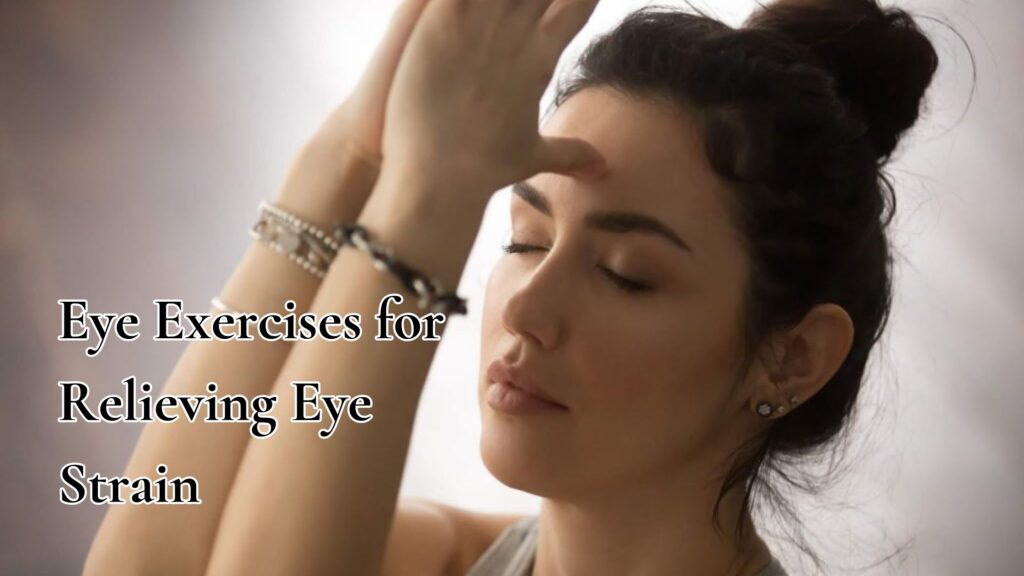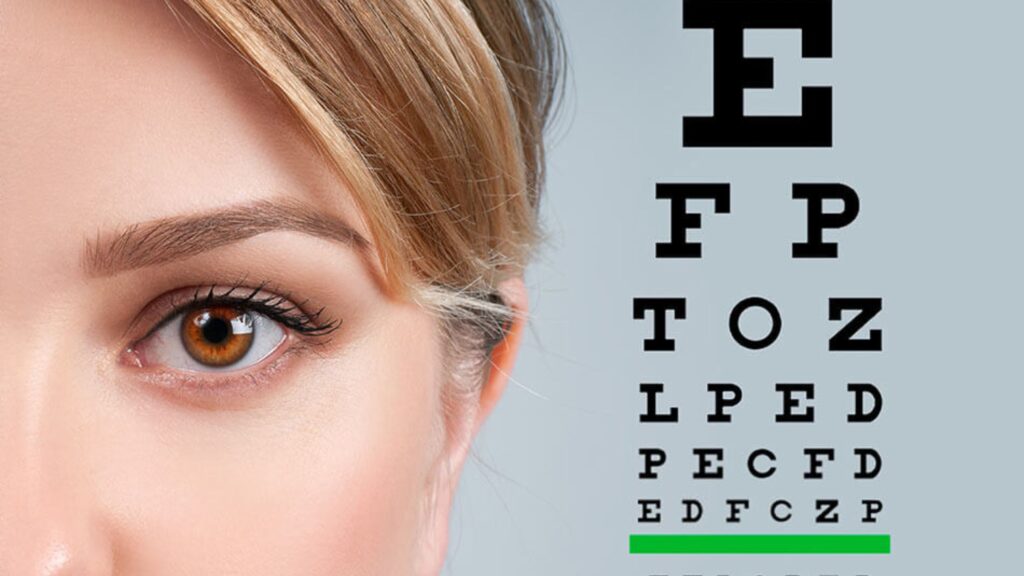Increase the Longevity of Your Eyes with These Eye Exercises and Healthy Eating Tips
Introduction
Our eyes play a crucial role in our daily lives, allowing us to perceive the world around us and experience its beauty. However, due to the increasing use of digital screens and a sedentary lifestyle, eye health issues have become more prevalent. To ensure the longevity of your eyes and maintain good vision, it is important to incorporate regular eye exercises and adopt healthy eating habits. In this article, we will explore various eye exercises and provide you with valuable tips on maintaining optimal eye health.

Understanding Eye Health
Before we delve into eye exercises and healthy eating tips, let’s understand the basics of eye health. The eyes are complex organs that rely on various components, including the cornea, lens, iris, and retina, to function properly. Factors such as aging, genetics, and environmental factors can contribute to eye problems like myopia, hyperopia, and astigmatism.
The Importance of Eye Exercises
Eye exercises are designed to strengthen the eye muscles, improve blood circulation, and enhance focus. They can also help relieve eye strain caused by excessive screen time and reduce the risk of eye-related issues. Incorporating eye exercises into your daily routine can significantly contribute to the longevity of your eyes and overall eye health.
Eye Exercises for Strengthening Eye Muscles

- Eye Rolling: Roll your eyes in a clockwise direction for a few seconds, then switch to counterclockwise. Repeat this exercise several times to strengthen the muscles around your eyes.
- Near and Far Focus: Focus on a nearby object for a few seconds, then shift your gaze to a distant object. Alternate between near and far focus to improve the flexibility of your eye muscles.
- Palming: Rub your palms together to generate warmth and place them gently over your closed eyes. Relax and let the warmth soothe your eyes, relieving any tension or strain.
Eye Exercises for Relieving Eye Strain

- Blinking: Frequent blinking helps to moisten the eyes and prevent dryness. Take regular breaks from screen time and consciously blink every few seconds to reduce eye strain.
- 20-20-20 Rule: Every 20 minutes, shift your focus to an object at least 20 feet away for 20 seconds. This exercise helps relax the eye muscles and prevents eye fatigue.
- Eye Massage: Gently massage your eyelids in a circular motion using your fingertips. This promotes blood circulation and provides relief from eye strain.
Eye Exercises for Enhancing Focus and Concentration

- Letter Tracing: Imagine a large letter of the alphabet in front of you and trace its shape with your eyes. Start with larger letters and gradually move on to smaller ones to improve focus and concentration.
- The Figure of Eight: Visualize a figure of eight horizontally in front of you. Trace its path with your eyes, following the imaginary shape. This exercise enhances eye coordination and strengthens eye muscles.
- Visualizations: Close your eyes and visualize a specific object or scenery in vivid detail. This exercise improves your ability to visualize and enhances mental focus.
Healthy Eating Tips for Maintaining Eye Health
A balanced diet rich in essential nutrients is crucial for maintaining optimal eye health. Incorporate the following healthy eating tips into your daily routine:

- Eat a Colorful Variety of Fruits and Vegetables: Include fruits and vegetables such as carrots, spinach, kale, oranges, and berries in your diet. They contain antioxidants and vitamins that promote good vision.
- Omega-3 Fatty Acids: Consume foods like salmon, tuna, flaxseeds, and walnuts that are rich in omega-3 fatty acids. These fatty acids help reduce the risk of age-related macular degeneration.
- Stay Hydrated: Drink an adequate amount of water throughout the day to keep your eyes hydrated and prevent dryness.
Foods for Promoting Good Vision
- Carrots: Carrots are rich in beta-carotene, a precursor of vitamin A, which is essential for good vision.
- Leafy Greens: Spinach, kale, and other leafy greens contain lutein and zeaxanthin, which help protect the eyes from harmful blue light.
- Citrus Fruits: Oranges, lemons, and grapefruits are packed with vitamin C, which is beneficial for maintaining the health of blood vessels in the eyes.
Nutrients for Healthy Eyes

- Vitamin A: Found in carrots, sweet potatoes, and liver, vitamin A is vital for good night vision and preventing dry eyes.
- Vitamin E: Nuts, seeds, and vegetable oils are excellent sources of vitamin E, which helps protect cells in the eyes from oxidative damage.
- Zinc: Oysters, beef, and pumpkin seeds are rich in zinc, which supports the health of the retina and aids in the production of melanin.
Lifestyle Habits for Eye Longevity
In addition to eye exercises and a healthy diet, certain lifestyle habits can contribute to the longevity of your eyes:
- Adequate Sleep: Getting sufficient sleep allows your eyes to rest and rejuvenate, reducing the risk of eye strain and fatigue.
- Protecting Your Eyes from Digital Screens: Limit your screen time, use blue light filters or glasses, and practice the 20-20-20 rule to minimize the impact of digital screens on your eyes.
Conclusion
Taking care of your eyes is essential for maintaining good vision and preventing eye-related issues. By incorporating regular eye exercises and adopting healthy eating habits, you can increase the longevity of your eyes and enjoy optimal eye health. Remember to consult with an eye care professional for personalized advice and recommendations.

FAQs
1. How often should I perform eye exercises? It is recommended to perform eye exercises for about 10-15 minutes, two to three times a day.
2. Can eye exercises cure myopia or astigmatism? While eye exercises can help improve certain aspects of vision, they are not a cure for myopia or astigmatism. Consult an eye care professional for appropriate treatment options.
3. Are there any specific foods to avoid for maintaining eye health? While there are no specific foods to avoid, it is advisable to limit the consumption of processed and sugary foods, as they can contribute to overall health issues.
4. Can eye exercises prevent age-related vision problems? Eye exercises, combined with a healthy lifestyle, can help reduce the risk of age-related vision problems. However, regular eye check-ups are still important for early detection and proper management.
5. Is it necessary to consult an eye care professional before starting eye exercises? If you have any underlying eye conditions or concerns, it is recommended to consult an eye care professional before starting any new exercise regimen.
Read here: 5 Sneaky Ways to Fit Exercise into Your Daily Routine!! Body Health tips you can follow easily




